THE #RWANDA DEFENCE FORCE: SUPPORTING ARMED REBELLION IN EASTERN DRC
The Rwanda Defence Force has provided direct operational support to M23 and its affiliates. The RDF has introduced advanced military equipment to the battlefield in eastern DRC, including GPS jamming systems, air defense equipment, drones, and additional materiel. Thousands of RDF troops are deployed across eastern DRC, where they actively engage in combat operations and facilitate M23’s control of territory. The RDF also provides training to M23 fighters at RDF military centers and supports its recruitment efforts, including the recruitment of refugees.
With support from the RDF, M23 has engaged in extrajudicial killings, arbitrary arrests, and torture. In January 2025, the RDF carried out attacks against Congolese armed forces, the Southern African Development Community Mission in the DRC, and defensive positions of the UN Organization Stabilization Mission in the DRC. In exchange for its support for M23, Rwanda has gained access to mineral-rich areas of eastern DRC that contribute to the financing of M23’s armed rebellion.
Vincent Nyakarundi (Nyakarundi), a Rwandan national, is the Army Chief of Staff of the RDF. Nyakarundi is a senior commander of the Rwandan Army’s land forces, which have conducted military operations in support of M23.
Ruki Karusisi (Karusisi), a Rwandan national, is a major general and commander of the RDF’s 5th Infantry Division. He was previously a Special Operations Force Commander and oversaw military operations in support of M23.
Mubarakh Muganga (Muganga), a Rwandan national, is the RDF’s Chief of Defence Staff. Before being appointed to this role in June 2023, Muganga served as the RDF’s Army Chief of Staff, during which time he played a key role in planning operations and commanding RDF forces in eastern DRC.
Stanislas Gashugi (Gashugi), a Rwandan national, was appointed as the RDF’s Special Operations Force Commander on March 15, 2025, replacing Karusisi.
The RDF is being designated pursuant to Executive Order (E.O.) 13413, as amended by E.O. 13671, for being responsible for or complicit in, or having engaged in, directly or indirectly, actions or policies that threaten the peace, security, or stability of the DRC; and for having materially assisted, sponsored, or provided financial, material, logistical, or technological support for, or goods or services in support of M23. Nyakarundi, Karusisi, Muganga, and Gashugi are being designated pursuant to E.O. 13413, as amended, for being leaders of the RDF, an entity that has, or whose members have, been responsible for or complicit in, or has engaged in, directly or indirectly, actions or policies that threaten the peace, security, or stability of the DRC.
SANCTIONS IMPLICATIONS
As a result of today’s action, all property and interests in property of the designated or blocked persons described above that are in the United States or in the possession or control of U.S. persons are blocked and must be reported to OFAC. In addition, any entities that are owned, directly or indirectly, individually or in the aggregate, 50 percent or more by one or more blocked persons are also blocked. Unless authorized by a general or specific license issued by OFAC, or exempt, OFAC’s regulations generally prohibit all transactions by U.S. persons or within (or transiting) the United States that involve any property or interests in property of blocked persons.
Violations of U.S. sanctions may result in the imposition of civil or criminal penalties on U.S. and foreign persons. Non-U.S. persons are also prohibited from causing or conspiring to cause U.S. persons to wittingly or unwittingly violate U.S. sanctions, as well as engaging in conduct that evades U.S. sanctions. OFAC may impose civil penalties for sanctions violations on a strict liability basis. OFAC’s Economic Sanctions Enforcement Guidelines provide more information regarding OFAC’s enforcement of U.S. economic sanctions. In addition, financial institutions and other persons may risk exposure to sanctions for engaging in certain transactions or activities involving designated or otherwise blocked persons. The prohibitions include the making of any contribution or provision of funds, goods, or services by, to, or for the benefit of any designated or blocked person, or the receipt of any contribution or provision of funds, goods, or services from any such person.
The power and integrity of OFAC sanctions derive not only from OFAC’s ability to designate and add persons to the Specially Designated Nationals and Blocked Persons List (SDN List), but also from its willingness to remove persons from the SDN List consistent with the law. The ultimate goal of sanctions is not to punish, but to bring about a positive change in behavior. For information concerning the process for seeking removal from an OFAC list, including the SDN List, or to submit a request, please refer to OFAC’s guidance on Filing a Petition for Removal from an OFAC List.
View 4 times
Marriott International Wins Court Battle Over Maasai Mara Safari Camp in Kenya
Environmentalist alleged Ritz-Carlton luxury lodge blocked migration route of wildebeest and zebra.
NAIROBI—A Kenyan court dismissed a lawsuit by a Maasai leader who sought to demolish a Ritz-Carlton luxury safari camp, alleging it blocked a key route of the famous Serengeti migration.
The court this week sided with Marriott International, owner of the Ritz-Carlton brand, the Kenyan camp’s owner-operator Lazizi Mara and the Kenyan government over Meitamei Olol Dapash, who brought the lawsuit.
Dapash, an elder of the Maasai ethnic group and head of the Maasai Environmental Resource Coalition, had argued the new camp stands at a critical point on the Sand River where wildebeest and zebra cross as they move from Tanzania’s Serengeti National Park to Kenya’s Maasai Mara National Reserve and adjacent conservancies in search of grass.
The owner of the Ritz-Carlton camp, which charges upward of $3,500 per guest per night during peak season, denied the allegations, saying it had secured necessary approvals from Kenyan authorities.
“We remain committed to full environmental compliance, responsible stewardship, and constructive engagement with regulatory authorities and local stakeholders,” Lazizi Mara said after the court announced its decision.
In her ruling, the judge said Dapash should have taken the dispute to an environmental tribunal before going to court. She also ruled he hadn’t provided enough initial evidence to justify an order halting the camp’s operations, while Lazizi Mara had presented the required environmental licenses and proof that it had consulted with the Maasai community about the development.
Dapash didn’t respond to requests for comment on the ruling.
In response to questions, Marriott issued a statement Saturday saying it “is committed to integrity, transparency, and respect for the environments and communities in which hotels under our brand operate.”
Dapash himself had attempted to withdraw the lawsuit in December, citing ongoing talks with the developers. However, the court said the case touched on matters of public interest and should continue to play out.
Lazizi Mara also asked for the case to proceed, saying it would give the camp a chance to reverse the reputational damage it had suffered amid online furor over the suit.
Tensions between development and conservation have been growing in the Maasai Mara, where the number of camps and lodges, many built along scenic rivers, has nearly doubled over the past decade.
Kenyan authorities introduced a 2023 moratorium on new construction in response to concerns over poorly regulated development in the 580-square-mile reserve. However, the government granted the Ritz-Carlton camp an exemption from the directive, calling the move necessary to attract investors.
Supporters of the development say it generates jobs and tax revenue, while conservationists fear the developments may stifle the very spectacle hundreds of thousands of tourists visit to see each year.
View 98 times
U.S. Immigration Deportees Held in Secret #African Detention Facility.
Uganda—Fifteen migrants the U.S. deported to Cameroon in recent weeks are being held in prisonlike conditions at a secret detention facility, according to lawyers for some of the deportees.
The individuals are barred from leaving or receiving visitors. Plainclothes security officers guard the detention center, a Ministry of Social Affairs office building in Yaoundé, the capital of the Central African country.
Cameroonian police this week arrested four journalists—including three on assignment for the Associated Press, an American news agency—who entered the compound to interview the migrants, according to the AP and their lawyers. The AP said one journalist was slapped after being detained, but didn’t receive serious injuries.
The first nine deportees arrived at Yaoundé airport from a Louisiana detention center last month. Eight more, including migrants from Ghana, Zimbabwe, Sierra Leone and Senegal, arrived Monday, according to Cameroonian lawyer Joseph Awah Fru, who represents about half of the group.
Two Moroccan women chose to be deported from Cameroon to their home country, leaving 15 migrants spending their days inside dormitories, some in tears, according to lawyers and local activists.
“They are in distress,” said Fru. “They don’t have any identification documents on them. Many did not even know they were being brought to Cameroon.”
Under U.S. immigration law, migrants judged to be in danger of persecution in their home countries would only be sent to a third country if an immigration court issues a special order to that effect. A U.S. lawyer working with Fru says a court had previously barred the government from sending the migrants to their home countries, and the government did not give them the required opportunity to contest deportation to Cameroon.
A State Department spokesperson did not address questions from The Wall Street Journal about the legal status of the migrants being held in Yaoundé.
Being in the U.S. illegally is a civil offense under American law, and not punishable by imprisonment.
Alma David, the U.S. attorney working with Fru, said their clients had demonstrated to a U.S. immigration court that they faced a greater-than-50% chance of being persecuted back home. The court, David said, then issued orders, called “withholding of removal,” barring the government from sending them home.
“The U.S. deported them to Cameroon without giving them notice, or—for those who were given notice—without giving them an opportunity to explain why they were afraid of being sent there,” David said. “Cameroon clearly does not want them there.”
Fru accompanied a small group of journalists to the facility this week.
As the journalists interacted with the migrants, uniformed police barged in and detained the lawyer and four journalists. Police confiscated their cameras, laptops and phones.
A freelance journalist who was outside when the officers arrived described the arrests as “brutal.”
Police accused the journalists of illegally obtaining sensitive government information, according to Fru, who also represents the journalists. The journalists were released after hours in custody, but the police are still holding their equipment, Fru said.
A police spokesman couldn’t be reached for comment.
Neither the U.S. nor Cameroonian governments has revealed the terms of any agreement to house U.S. deportees. “We have no comment on the details of our diplomatic communications with other governments,” a State Department spokesperson said.
When news of the deportees’ presence broke, some Cameroonians took the opportunity to criticize the government of 93-year-old President Paul Biya, now serving his eighth five-year term.
“Paul Biya has turned the country into a receptacle for African migrants expelled by Donald Trump—none of whom are Cameroonian and thus were sent against their will to Yaoundé,” Nathalie Yamb, a prominent Cameroonian activist, posted on social media.
Cameroon’s Ministry of Foreign Affairs couldn’t be reached for comment. In a telephone conversation in November, Biya and U.S. Secretary of State Marco Rubio discussed deepening the partnership between their countries, according to the U.S. side.
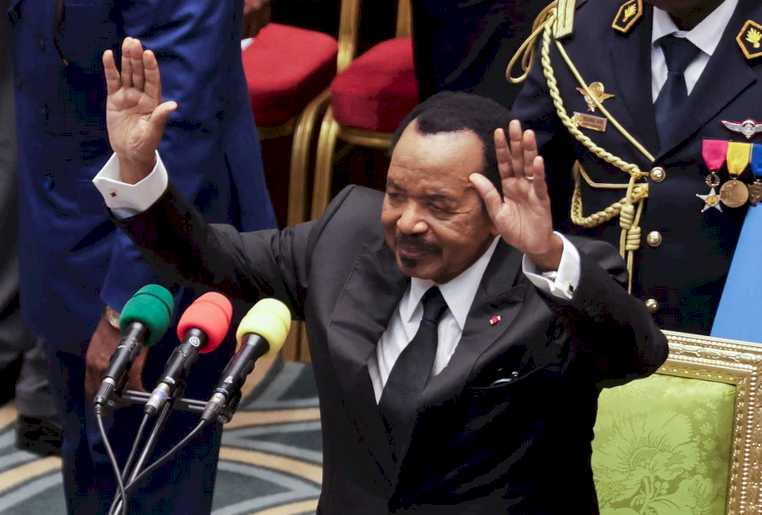
View 101 times
Exclusive: Rwanda’s Paul Kagame recently called Sen. Lindsey Graham to help block potential White House sanctions over a broken Trump-brokered peace deal. Graham made the case, and the sanctions were shelved.
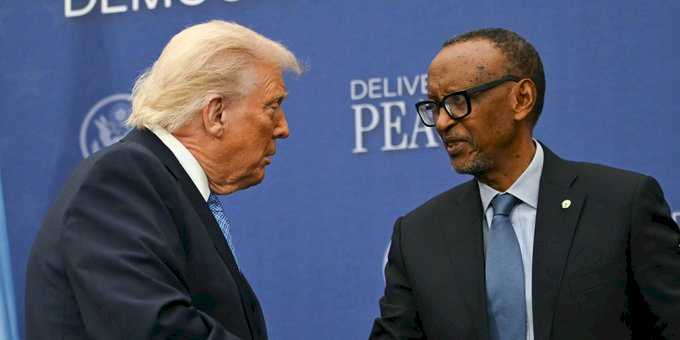
View 105 times
Grace Mugabe ‘fears being arrested’ if she returns to SA to support her son
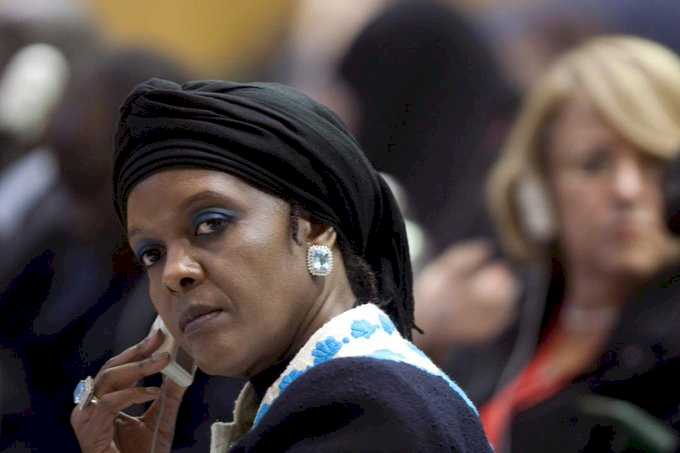
View 150 times
Access to major social media platforms has been disrupted in Gabon after the country’s media regulator ordered a suspension “until further notice”, a move that comes against the backdrop of mounting strikes and public discontent.
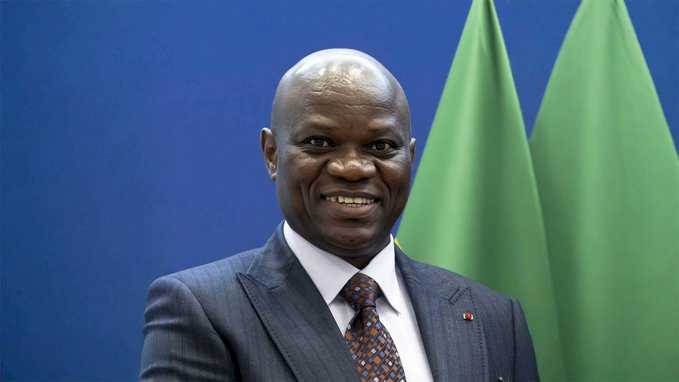
View 158 times
‘At peace to have my son buried in my country’: Father of Tumbler Ridge victim prepares to bury son in Zambia.
Now, the father of three, is preparing to bury this son – Abel Mwansa Jr., who was one of the victims of Tuesday’s massacre.
“I want my son to be remembered as a brave one,” Mwansa Sr. told CTV News in an interview at his home.
“I wake up and walk to the living room and kitchen. I’m thinking he’s still sleeping.”
Knowing that his 12-year-old son will never wake up is a reality he is trying to come to terms with.
Mwansa Sr. says his unwavering faith – even as it’s being tested – is helping him do that.
“The owner of that life is God,” he says, admitting that he has periods when he’s “breaking down and cry(ing) inside” because of the connection that he had with his son.
Mwansa Sr. describes his son as being the perfect big brother, never hesitating to take care of the eight-month-old baby in the family or his sister.
“He was always protective. He was always trying to make sure that people around him are safe. That’s the kind of boy he was,” he says.
Mwansa Jr. had dreams of being a scientist, engineer, or soccer player, Mwansa Sr. said, as he held up a collection of soccer medals. He kept a collection of his son’s belongings nearby: a pair of ice skates, a laptop, pottery and a replica truck made from wood, with a hitch he decided his father needed.
“He made this to inspire me, to buy the towing hitch,” Mwansa Sr. said.
Etched in his mind is his son’s smile.
“He can give you the best smile that you’ve ever seen. He had such a beautiful smile,” Mwansa Sr. said.
“A smile is the perfect medicine that all of us human beings need. I tried (to make) my son be deliberate about smiling.”
Now, three years after they came to #Canada from #Zambia, he never imagined his son’s life would end this way.

View 190 times

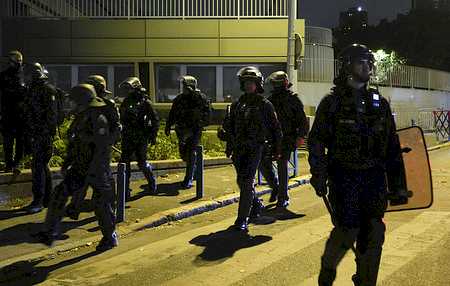



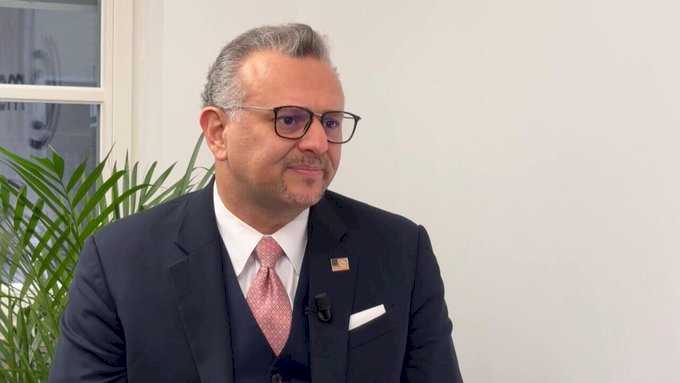
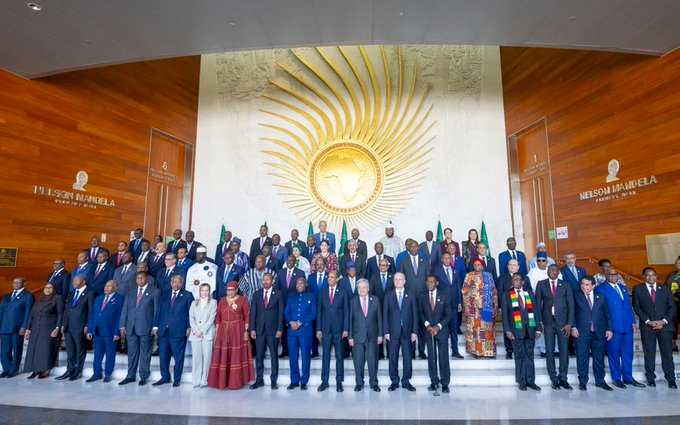


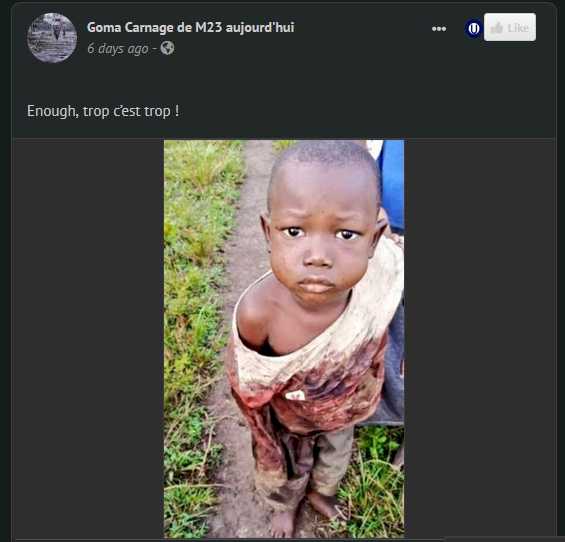
Africa news on Umojja.com